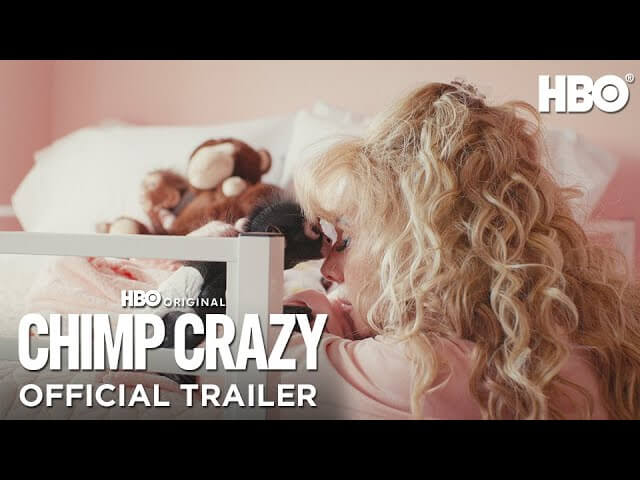Connor the chimpanzee’s face is familiar to many through Hallmark and American Greetings cards, but in August 2024 he became known as one of the subjects of HBO’s docuseries Chimp Crazy. Connor’s tale is a stark reminder about the dark side of using animals for entertainment and commercial gain.
Connor the Chimpanzee’s Story: A Life in Captivity
Connor’s story began like those of many other chimpanzees who are torn away from their natural habitat or born into captivity. He was born in 1995 at the notorious Missouri Primate Foundation, owned at the time by Connie Casey. His father, Coco, was abducted from his family and home in Africa and purchased by Casey in 1975. She had purchased Connor’s mother, Gabby, from a breeder in Florida in 1976.
Shortly after Connor’s birth, Casey and her husband paraded the baby chimpanzee at parties, on movie sets, and in photo shoots via their company, Chimparty. Connor became one of the chimpanzees whose image Hallmark routinely profited from. What looked like a “smile” exhibited by chimpanzees like him on greetings cards is actually a fear grimace.
Chimpanzees are highly intelligent, social animals with complex emotional lives. When they’re used for human entertainment, they suffer immensely. At the final Hallmark photo shoot the Caseys forced Connor to do, he reportedly bit his handler and tried to attack three other people.
Connor’s owners stripped him of the chance to live in a natural setting, subjecting him to an existence that revolved around performing for the camera and in crowds, often under stressful conditions. Chimpanzees like Connor don’t belong on greeting cards or at parties. They belong in settings where they can engage in natural behavior and live in complex social structures.
Chimp Crazy and the Consequences of Animal Exploitation
HBO’s Chimp Crazy focuses renewed attention on Connor, highlighting how disturbing it is to keep chimpanzees as “pets” and use them for entertainment. Behind the scenes, chimpanzees like him endure significant stress and trauma. Their lives in human homes or roadside zoos are often marked by isolation and frustration. These intelligent animals are deprived of the stimulating environments they would experience in nature. All chimpanzees kept as “pets” develop psychological issues, which could include depression, post-traumatic stress disorder, unpredictable aggression, and self-harm.
PETA’s Work for Connor and Others Like Him
Thanks to PETA’s vigorous work to end the use of chimpanzees in the entertainment industry, they are no longer exploited on movie sets. PETA’s advocacy, lawsuits, and public awareness campaigns have helped bring about significant changes in how these animals are treated.
Connor at the Missouri Primate Foundation
Following bold PETA campaigns, Hallmark and American Greetings—the world’s largest greeting card companies—stopped producing and selling cards featuring harmful and degrading images of chimpanzees.
Connor’s Final Years at an Accredited Sanctuary
After Connor was exploited for years, PETA’s lawsuit against the Missouri Primate Foundation made it possible for him to live in an accredited sanctuary, The Center for Great Apes, where his needs were prioritized over profits.
A Call to Action: Protecting Chimpanzees From Exploitation
Connor’s story is a call to action for everyone. It reminds us that animals shouldn’t be used for entertainment and that chimpanzees should never be exploited as “pets” or props for our amusement. We must support work to protect these amazing animals in their natural habitat and ensure that those already in captivity are treated with the respect and care they deserve.
PETA protest at Hallmark in the Country Club Plaza in Kansas City, Mo. by Christopher Smith
Connor the chimpanzee’s final years brought a glimmer of hope. His story is a powerful testament to the critical importance of treating animals with compassion and respect.
What Is the Captive Primate Safety Act?
Chimp Crazy has kicked off a wave of support for legislation introduced by U.S. Sen. Richard Blumenthal (D-Conn.) that would help prevent tragedies like those of Connor and the other exploited chimpanzees featured in the docuseries. The bipartisan Captive Primate Safety Act would ban the private ownership, breeding, and commercial trade of primates. PETA’s work ended the use of chimpanzees in films, and now we’re aiming to ensure that no more great apes are victims of the pet trade.
YOU can take action by contacting your federal legislators and urging them to cosponsor the Captive Primate Safety Act:
What Happened to the Other Chimpanzees Once Held Captive at the Missouri Primate Foundation?
Watch Chimp Crazy to find out:
The post Connor the Chimpanzee Used to Appear on Hallmark Cards—Here’s His Story appeared first on PETA.

